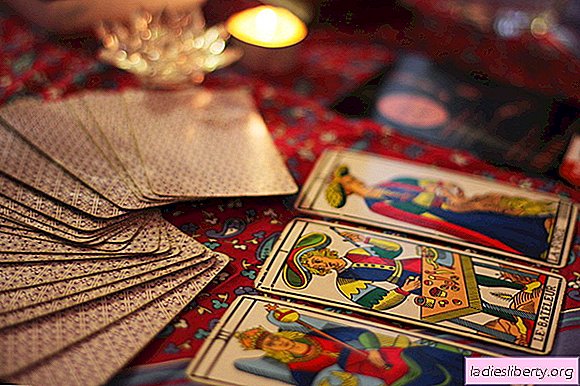
What is confession?
Why is it needed, and how to properly name sins in confession?
How much should a priest confess?
How to prepare the sacrament for those who want to repent for the first time?
All these questions sooner or later are asked by every Orthodox person.
Let's look at all the intricacies of this sacrament together.
Confession for an Orthodox person - what is it?
Repentance or confession is a sacrament during which a person verbally reveals his sins to God in the presence of a priest who has the power to remit sins from the Lord Jesus Christ Himself. The Lord during his earthly life gave his apostles, and through them, to all priests the power to forgive sins. During confession, a person not only repents of committed sins, but also makes a promise not to repeat them again. Confession is the purification of the soul. Many people think: "I know that anyway, even after confession, I will commit this sin again (for example, smoking). So why should I confess?" This is fundamentally wrong. You don’t think: "Why should I wash myself if I get dirty tomorrow anyway." You still take a bath or shower, because the body must be clean. Man is weak by nature, and will sin throughout his life. This is why confession is needed to purify the soul from time to time and work on its shortcomings.
Confession for an Orthodox person is very important, because during this sacrament reconciliation with God takes place. You need to confess at least once a month, but if you have a need to do this more often, please. The main thing is to know how to properly name sins in confession.
For some particularly serious sins, the priest may appoint penance (from the Greek “punishment” or “special obedience”). It can be a long prayer, fasting, alms or abstinence. This is a kind of medicine that will help a person get rid of sin.
A few recommendations for those who want to confess for the first time
As with any sacrament, confession must be prepared. If you first decided to repent, then you need to find out when a sacrament is usually held in your temple. It is mainly spent on holidays, Saturday and Sunday.
As a rule, there are many who wish to confess on such days. And this becomes a real obstacle for those who want to confess for the first time. Some are shy, while others are afraid to do something wrong.
It will be good if you, before the first confession, ask the priest to schedule a time for you and the priest to be alone. Then no one will embarrass you.
It is advisable, before confession, to read the Penitent canon to the Lord Jesus Christ in order to properly "tune in" to repentance. This applies to all who are preparing for confession.
You can make yourself a little cheat sheet. Write sins on a piece of paper so that you don’t miss out on confession from excitement.
How to name sins in confession: what sins should be called
Many, especially those who have just begun their journey to God, rush from one extreme to another. Some dryly list common sins, written out, as a rule, from church books about repentance. Others, on the contrary, begin to describe in every detail such a complete sin that it no longer becomes a confession, but a story about himself and his life.
What sins to confess? Sins are divided into three groups:
1. Sins against the Lord.
2. Sins against neighbors.
3. Sins against your soul.
Let's take a closer look at each individually.
1. Sins against the Lord. Most modern people are estranged from God. They don’t go to temples or do it extremely rarely, and they have only heard of prayers at best. However, if you are a believer, did you not hide your faith? Maybe they were embarrassed to cross themselves in front of people or to say that you are a believer.
Hula and grumble against God - one of the most serious and grave sins. We commit this sin when we complain about life and believe that there is nobody in the world who is more unhappy.
Blasphemy. You committed this sin if you ever taunted the customs or ordinances of the Church in which you understand nothing. Jokes about God or the Orthodox faith are blasphemy too. And it doesn’t matter if you listen to them or tell them.
False oath or deception. The latter suggests that in man there is no fear of the greatness of the Lord.
Failure to fulfill one's vows. If you made a vow to God to do some good work, but did not restrain it, this sin must be confessed.
Do not pray daily at home. It is through prayer that we communicate with the Lord and the Saints. We ask for their intercession and help in the fight against their passions. Without prayer there can be neither repentance nor salvation.
Interest in occult and mystical teachings, as well as pagan and verbal sects, witchcraft and divination. In fact, such an interest can be not only detrimental to the soul, but also to the mental and physical state of a person.
Superstition. In addition to the superstitions that we inherited from our pagan ancestors, we began to get involved in the ridiculous superstitions of newfangled teachings.
Neglect of your soul. Moving away from God, we forget about our soul and cease to pay due attention to it.
Thoughts of suicide, gambling.
2. Sins against neighbors.
Disrespect for parents. We should respect our parents. The same applies to the attitude of students to their teacher.
Resentment to neighbor. By offending loved ones, we harm his soul. We also commit this sin when we advise our neighbors something vicious or evil.
Slander. Slander people in vain. Blaming a person without confidence in his guilt.
Gloating and hate. This sin is equated with homicide. We must help and sympathize with our neighbor.
Grudge. It shows that our heart is full of pride and self-justification.
Disobedience. This sin becomes the beginning for more serious evils: impudence against parents, theft, laziness, deceit and even murder.
Condemn. The Lord said: "Do not judge, but you will not be judged, for by what judgment you judge, you will be judged; and by what measure you will measure, so will you measure." Condemning a person for this or that weakness, we can fall into the same sin.
Theft, stinginess, abortion, theft, commemoration of the deceased with alcohol.
3. Sins against your soul.
Laziness. We don’t go to the temple, we reduce morning and evening prayers. Engaged in idleness, while you need to work.
Lying. All bad deeds are accompanied by a lie. No wonder Satan is called the father of lies.
Flattery. Today it has become a weapon to achieve earthly goods.
Foul language. This sin is especially prevalent among young people today. From profanity, the soul becomes coarse.
Impatience. We must learn to restrain our negative emotions, so as not to harm our souls and not offend loved ones.
Lack of faith and disbelief. A believer should not doubt the mercy and wisdom of Our Lord Jesus Christ.
The charm and self-seduction. This is an imaginary proximity to God. A person suffering from this sin considers himself almost a saint and puts himself above others.
The long cover-up of sin. As a result of fear or shame, a person cannot open a perfect sin in confession, believing that he can no longer be saved.
Despair. This sin often persecutes people who have committed serious sins. It must be practiced in order to prevent irreparable consequences.
Blaming others and self-justification. Our salvation lies in the fact that we can recognize ourselves and only ourselves guilty of our sins and deeds.
These are the main sins that almost everyone commits. If earlier during a confession sins were voiced that were no longer repeated, then they need not be confessed again.
Fornication (including marriage without marriage), incest, adultery (adultery), sexual relations between people of the same sex.
How to correctly name sins in confession - can they be written on paper and simply given to the priest
Sometimes, in order to tune in to confession and not to worry that during the sacrament you will forget something, they write sins on paper. In this regard, many are wondering: can I write sins on a piece of paper and just give it to the priest? Definitive answer: No!
The meaning of confession lies precisely in the fact that a person voiced his sins, mourned them and hated them. Otherwise, it will not be repentance, but a report writing.
Over time, try to completely abandon any pieces of paper, and tell in confession exactly what is bothering your soul at this very moment.
How to properly name sins in a confession: where to start a confession and how to end
Approaching the priest, try to throw thoughts of the earth out of your head and listen to your soul. Begin the confession with the words: “Lord, I have sinned before you” and begin to list sins.
No need to list sins in detail. If, for example, you stole something, then you do not need to tell the priest where, when, and under what circumstances this happened. Just say: Sinned by theft.
However, it’s not worthwhile listing the sins completely. For example, you come up and start saying: "Sinned with anger, irritation, condemnation, etc." This is also not entirely correct. It would be better to say this: "I have sinned, Lord, with irritation to my husband" or "I constantly condemn the neighbor." The fact is that a priest during a confession can give you advice on how to deal with a particular passion. It is these clarifications that will help him figure out the reason for your weakness.
You can end the confession with the words "I repent, Lord! Save and have mercy on me a sinner!"
How to properly name sins in confession: what to do if ashamed
Shame during a confession is quite normal, because there are no people who would like to talk about their not-so-pleasant sides. But you need not fight with him, but try to survive, endure it.
First of all, you must understand that you confess your sins not to the priest, but to God. Therefore, shame should not be before the priest, but before the Lord.
Many people think: "If I tell the priest everything, he will probably despise me." This is absolutely not important, the main thing is to beg forgiveness from God. You must clearly decide for yourself: get rid and cleanse your soul, or continue to live in sins, plunging into this dirt more and more.
The priest is only a mediator between you and God. You must understand that during the confession the Lord Himself stands invisibly in front of you.
I want to say again that only in the sacrament of confession does a person with a broken heart repent of sins. After which a permissive prayer is read over him, which frees a person from sin. And remember, he who conceals sin during confession will receive even greater sin before God!
Over time, you will get rid of shame and fear and will better understand how to properly name sins in confession.











